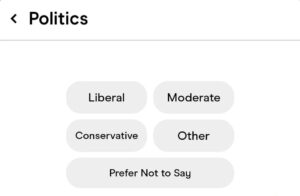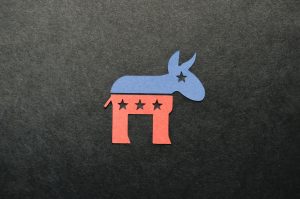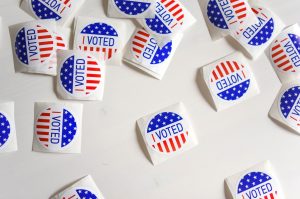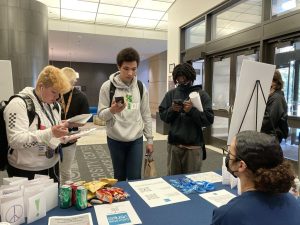The political upheaval of the past year has disrupted many relationships, giving an additional meaning to “social distancing.”
As a Black man, Jakobi Irvin, 19, a first-year student at Columbia College Chicago, feels fear when he encounters a police officer. “I am afraid that I’m going to be the next hashtag,” he said.
But this isn’t something he can easily talk about at home; both of his parents work for the Chicago Police Department. Sometimes, this puts him in the uncomfortable position of wishing to defend his parents’ work to friends who are hostile to all police. This has caused some of his friendships to end. “It’s been difficult for me to make friends this year,” he said. “I’ve been feeling a lot of loneliness.”
Emily Van Duyn Ph.D., an assistant professor at University of Illinois, Urbana-Champaign, has studied how people avoid expressing political opinions in public. It’s not hard to find examples of this among Chicagoans in 2021.
For Gerson Matias-Ryan, 20, also a first-year student at Columbia, his progressive political beliefs brought him into conflict with his grandfather. He felt sad when his grandfather would not take a stand for topics that Matias-Ryan felt passionately about, such as the Black Lives Matter movement. Since then, Matias-Ryan is less comfortable talking about politics with his family and finds this has harmed his relationship with his grandfather.
“It’s hard to determine what things should be open for discussion and what shouldn’t be,” he said. “It seems like the middle ground isn’t really an option anymore.”
Amaris Delgado, 20, understands this struggle. The Columbia senior has been saddened this past year watching friends leave each other’s lives just for having conflicting political views. Delgado recalls many of her friends and family arguing over movements such as Black Lives Matter and #StopAsianHate.
“Even if you didn’t cut a person out of your life, you’re never going to look at them the same way because of how tense the situation was in 2020,” they said. Delgado hopes people can learn to talk across their differences, though Van Duyn’s research doesn’t suggest that’s likely to happen. “We need to have opposed conversations instead of building up to arguments,” Delgado said.







Be First to Comment